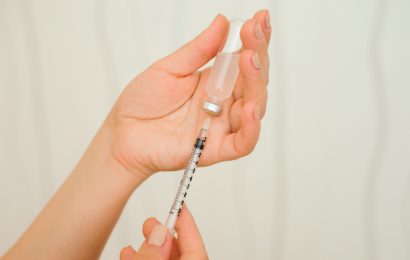Years of research have suggested that there is a connection between obstructive sleep apnea (OSA) and Type 2 diabetes. Now, the largest study investigating the conditions to date has demonstrated a link between the severity of a person’s OSA and his risk of developing Type 2.
OSA is a condition in which breathing stops for 10 seconds or more during sleep, sometimes hundreds of times a night. The disorder affects approximately 18 million people in the United States, and research has shown that the condition is associated with increased risk for cardiovascular death.
To determine whether OSA increases the risk of developing diabetes, researchers from the University of Toronto looked at 8,678 adults with suspected OSA who underwent a sleep study between 1994 and 2010. The severity of each person’s sleep apnea was evaluated using a measurement known as the apnea-hypoapnea index (AHI), which indicates the number of times a person stops breathing or breathes irregularly each hour. Based on the results, the study subjects were placed into one of four OSA categories — none, mild, moderate, or severe — and were then followed through May 2011 to examine whether they went on to develop diabetes.
Over the course of the follow-up period, 1,017 (11.7%) of the participants developed Type 2 diabetes. After adjusting for risk factors known to increase a person’s chances of developing the condition, including age, sex, body-mass index, neck circumference, smoking, and income status, people with severe OSA were found to have a 30% higher risk of developing Type 2 diabetes than people without OSA. Additionally, those with mild or moderate OSA were found to have a 23% increased risk of developing Type 2 compared to those without OSA.
Additional risk factors for diabetes included experiencing breathing difficulties during the rapid eye movement (REM) stage of sleep, low oxygen levels in the blood, sleep deprivation, and activation of the sympathetic nervous system as indicated by increased heart rate.
“After adjusting for other potential causes, we were able to demonstrate a significant association between OSA severity and the risk of developing diabetes,” noted lead study author Tetyana Kendzerska, MD, PhD. “The OSA-related predictors of increased diabetes risk that we found in our study may allow for early preventative interventions in these patients.”
Limitations of the study include a lack of data on certain variables that can impact a person’s risk of developing Type 2, including family history of diabetes and race.
For more information, read the article “Sleep apnea tied to diabetes in large study” or see the study’s abstract in the American Journal of Respiratory and Critical Care Medicine. And to learn more about the connection between obstructive sleep apnea and Type 2, see “Sleep Apnea and Type 2 Diabetes: A Vicious Circle,” by Ralph Pascualy, MD, Director of the Swedish Sleep Medicine Institute.




